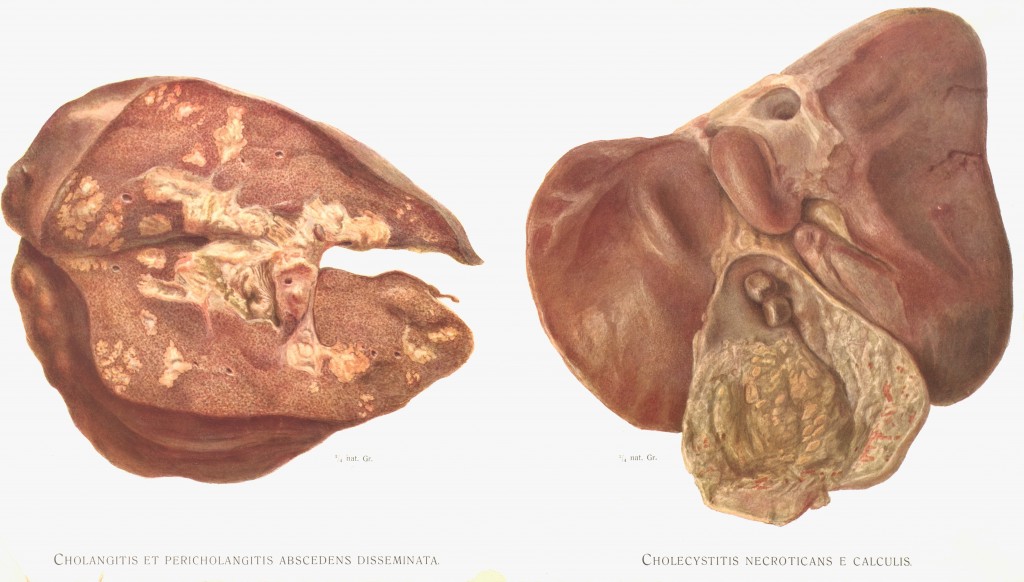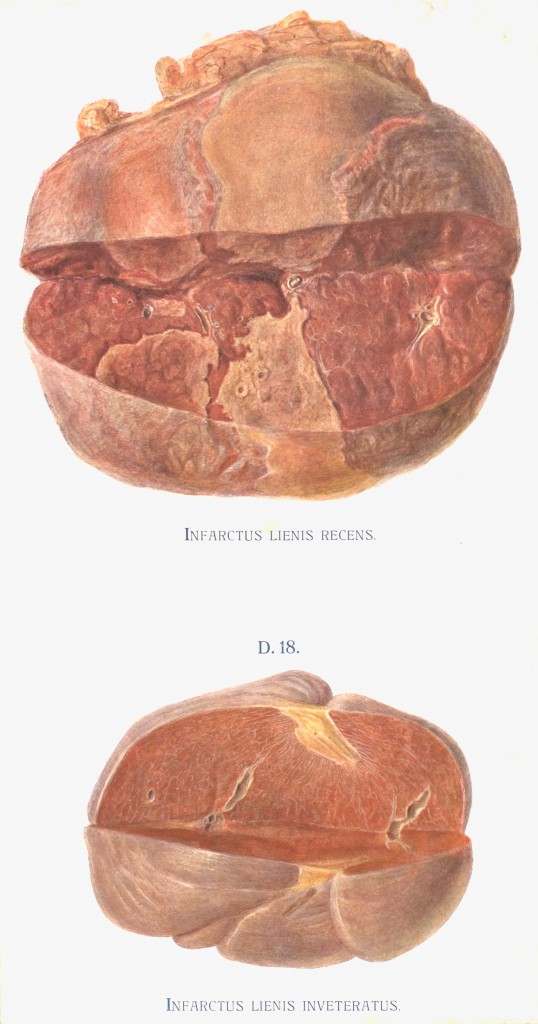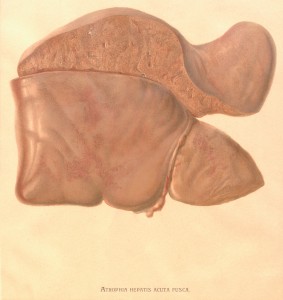
Illustration from Pathologisch-anatomische Tafeln: nach frischen Präparaten mit erläuterndem anatomisch-klinischem text, circa 1892
Recent summer housekeeping has turned up a series of rare mounted chromographed plate illustrations from late-19th century patho-anatomical atlas Pathologisch-anatomische Tafeln: nach frischen Präparaten mit erläuterndem anatomisch-klinischem text (Pathological anatomy plates: reproduced from fresh preparations with explanatory anatomical-clinical text) by German internist Alfred Kast (1856-1903).
The archives has eight of these illustrations in total, donated to the Osler Library back in the 1970s as part of the Maude Abbott Collection. Unfortunately no copy of this atlas exists at McGill, however WorldCat shows The Thomas Fisher Rare Book Library at the University of Toronto as having a copy in their catalogue. For those interested in seeing more of this series, The Wellcome Trust in London has fifteen of Kast’s anatomical illustrations included in their online Wellcome Images collection.
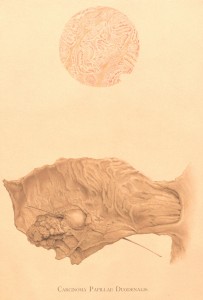
Illustration with microscopic detail from Pathologisch-anatomische Tafeln: nach frischen Präparaten mit erläuterndem anatomisch-klinischem text, circa 1892
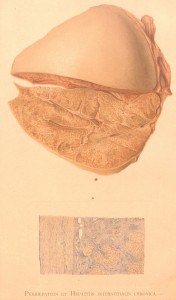
Illustration with microscopic detail from Pathologisch-anatomische Tafeln: nach frischen Präparaten mit erläuterndem anatomisch-klinischem text, circa 1892


